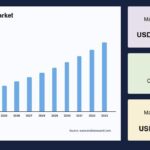In an era where financial decisions often feel overwhelming and complex, personal finance apps have emerged as trusted companions, guiding users through the maze of budgets, investments, and savings. At the heart of this transformation lies artificial intelligence-a silent, intelligent force reshaping how we manage money. From personalized budgeting advice to predictive analytics that anticipate spending habits, AI is not just a feature but the engine powering smarter financial choices. This article explores how AI is seamlessly woven into personal finance apps, making money management more intuitive, accessible, and tailored to individual needs.
Understanding AI Driven Budgeting and Expense Tracking

Artificial intelligence fundamentally transforms how budgeting and expense tracking operate within personal finance apps by offering real-time, precise insights tailored to each user’s habits. Instead of static spreadsheets, AI algorithms analyze spending patterns, predict upcoming expenses, and categorize transactions automatically. This dynamic approach allows users to stay ahead of their financial goals, receive personalized alerts when overspending in specific categories, and discover hidden opportunities to save money. With AI’s ability to continuously learn, these apps grow smarter over time-anticipating needs and adjusting budgets as life changes.
Key features often powered by AI include:
- Automated classification of income and expenses for seamless tracking
- Customized budgeting suggestions based on historical spending behavior
- Fraud detection by flagging unusual transactions in real-time
- Smart reminders to pay bills and avoid late fees
| Feature | Benefit |
|---|---|
| Dynamic Budget Adjustments | Adapts based on unexpected changes |
| Predictive Spending Forecasts | Prepares you for upcoming costs |
| Personalized Saving Tips | Encourages smarter financial choices |
Leveraging Machine Learning for Personalized Financial Advice

Machine learning algorithms analyze vast amounts of transaction data, spending habits, and financial goals to tailor advice uniquely suited to each user. By continuously adapting to new information, these algorithms can predict cash flow issues, recommend optimal saving strategies, and even suggest personalized investment opportunities. This dynamic capability transforms generic financial apps into proactive advisors, empowering users to make informed decisions with confidence.
Key features driven by machine learning include:
- Smart budgeting: Automatic categorization and adjustment of expense limits based on real-time spending patterns.
- Risk assessment: Personalized evaluation of investment portfolios relative to user risk tolerance and market trends.
- Goal tracking: Adaptive reminders and actionable insights that evolve as users progress toward their financial objectives.
| Feature | Benefit | Example |
|---|---|---|
| Automated Saving Suggestions | Boosts savings without extra effort | Transfers spare change to savings |
| Expense Pattern Detection | Identifies unusual spending | Alerts on subscription spikes |
| Investment Personalization | Matches portfolio to risk profile | Suggests index funds and ETFs |
Enhancing Security and Fraud Detection with AI Technologies

Financial technology has witnessed a transformative leap by integrating AI-driven systems that vigilantly monitor transactions to detect anomalies in real time. These intelligent algorithms analyze vast datasets to recognize patterns indicative of fraudulent behavior, such as unusual spending spikes or access from unfamiliar devices. By deploying machine learning models, apps can adapt continuously, improving their accuracy in identifying threats without compromising the user experience. Users benefit from instant alerts and seamless verification processes, which not only prevent unauthorized access but also foster trust in digital financial management.
Key AI capabilities that bolster security include:
- Behavioral biometrics to verify user identity through unique interaction patterns
- Predictive analytics for forecasting potential fraud scenarios
- Automated risk scoring to prioritize investigation efforts
| Feature | Benefit |
|---|---|
| Real-time Monitoring | Instant fraud detection |
| Adaptive Algorithms | Improved threat recognition over time |
| User Behavior Profiling | Customized security measures |
Optimizing Investment Decisions Through Predictive Analytics

Personal finance apps are revolutionizing the way investors manage their portfolios by leveraging predictive analytics to anticipate market trends and optimize decision-making. These sophisticated algorithms analyze vast datasets-from historical stock performance to macroeconomic indicators-and translate them into actionable insights. Users benefit from customized recommendations that adapt to changing conditions, helping them identify lucrative opportunities and avoid potential risks before they arise. This real-time foresight not only enhances portfolio growth but also boosts confidence in navigating volatile markets.
Key features empowering investors through predictive analytics include:
- Risk Assessment Models: Evaluate the probability and impact of market fluctuations specific to an investor’s profile.
- Performance Forecasts: Project future returns based on historical data and trending economic variables.
- Sentiment Analysis: Monitor news and social media to gauge public sentiment affecting asset values.
- Automated Rebalancing Alerts: Prompt users to adjust their portfolios proactively to maintain optimal asset allocation.
| Feature | Benefit | Example Use Case |
|---|---|---|
| Risk Analysis | Minimizes potential losses | Warns before market dips |
| Return Forecasting | Guides investment timing | Predicts future stock growth |
| Sentiment Tracking | Detects market moods | Identifies trending assets |
| Rebalancing Alerts | Maintains target portfolio mix | Suggests asset adjustments |
Key Takeaways
As personal finance apps continue to evolve, AI stands at the forefront of this transformation, quietly weaving intelligence into everyday money management. From budgeting and forecasting to personalized advice and fraud detection, AI empowers users to navigate their financial journeys with greater confidence and clarity. While the technology behind these tools remains complex, their impact is simple and profound: making personal finance more accessible, insightful, and tailored to individual needs. In the unfolding story of money and technology, AI is not just a tool-it’s becoming a trusted companion.














